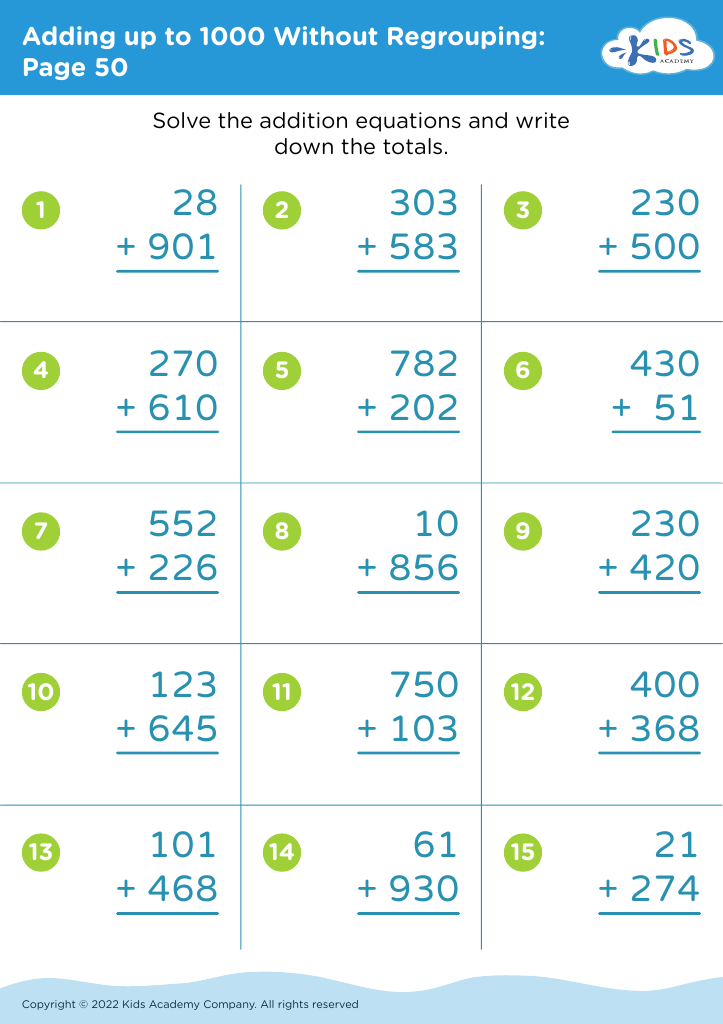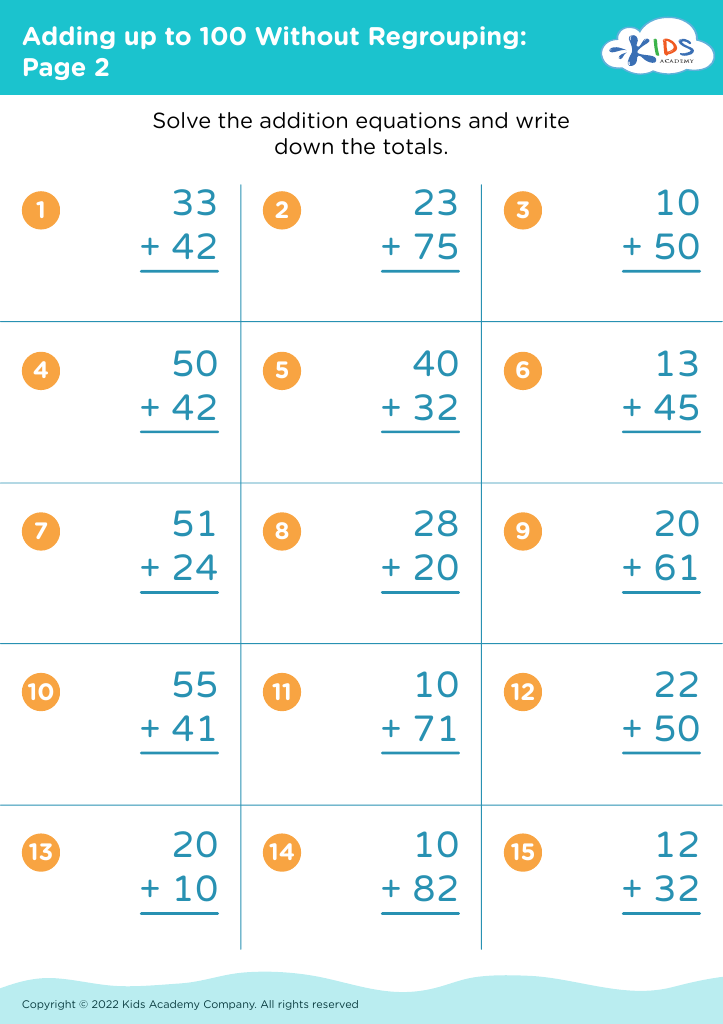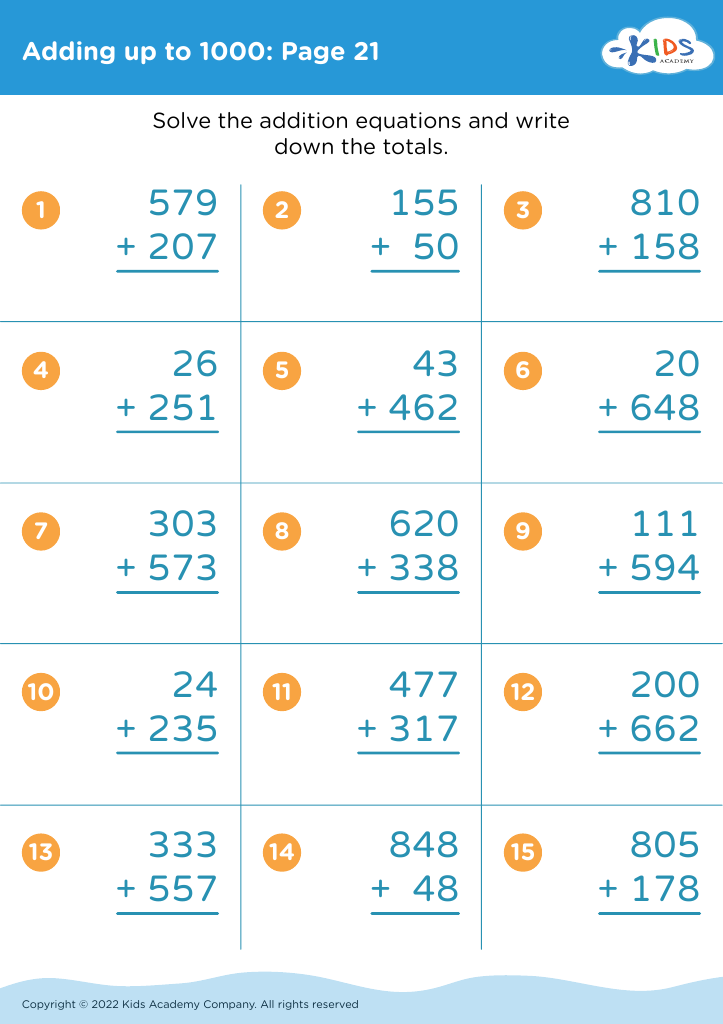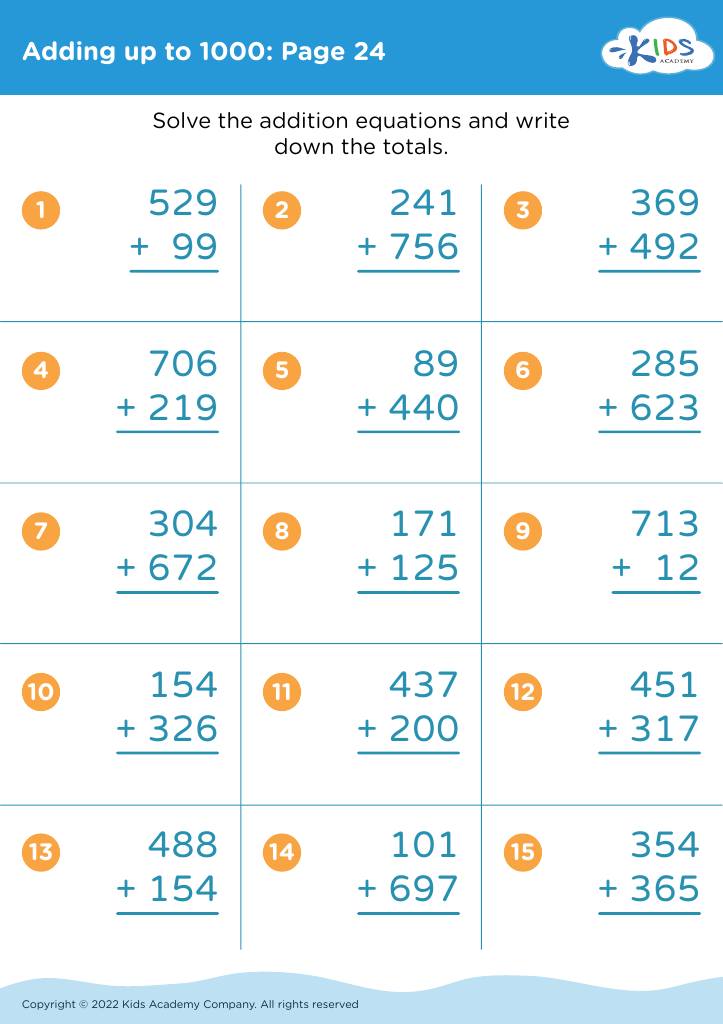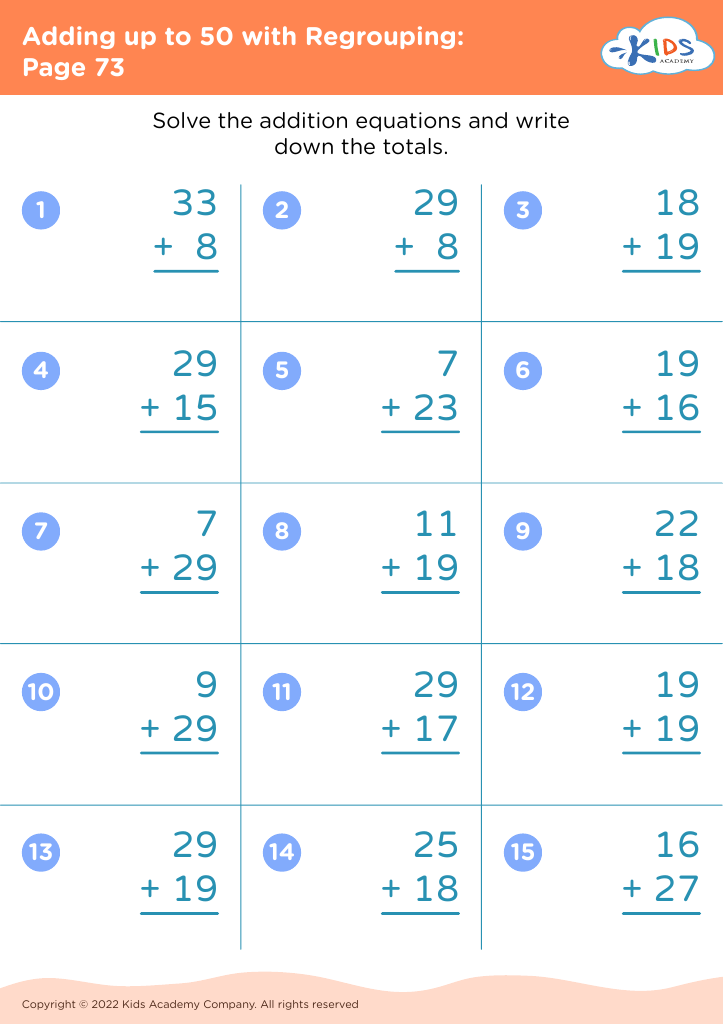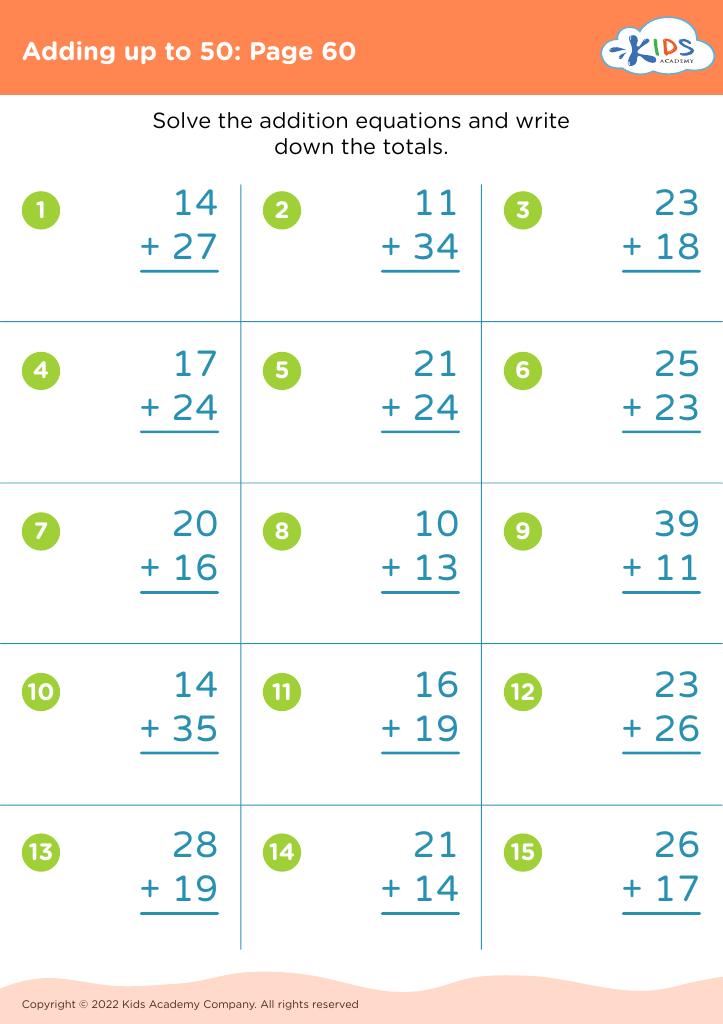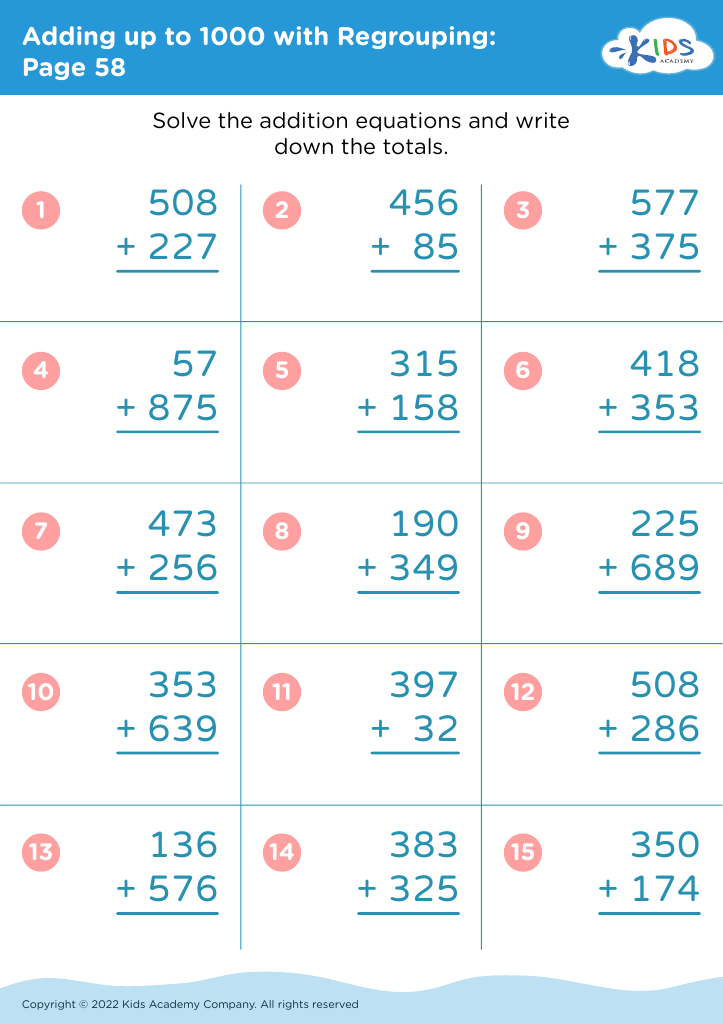Fine Motor Skills Addition Worksheets for Ages 6-9
40 filtered results
-
From - To
Enhance your child's fine motor skills while they master addition with our engaging worksheets designed for ages 6-9. Each activity combines mathematical concepts with fun, hands-on exercises that encourage development through cutting, coloring, and tracing. Our carefully crafted worksheets foster not only math proficiency but also improve hand-eye coordination and dexterity. As children progress, they’ll gain confidence in both their math abilities and fine motor coordination. Whether at home or in the classroom, these worksheets provide an interactive way to bring together learning and skill-building. Explore our collection and watch your young learners thrive in a playful, educational environment!


Counting Seedlings Worksheet
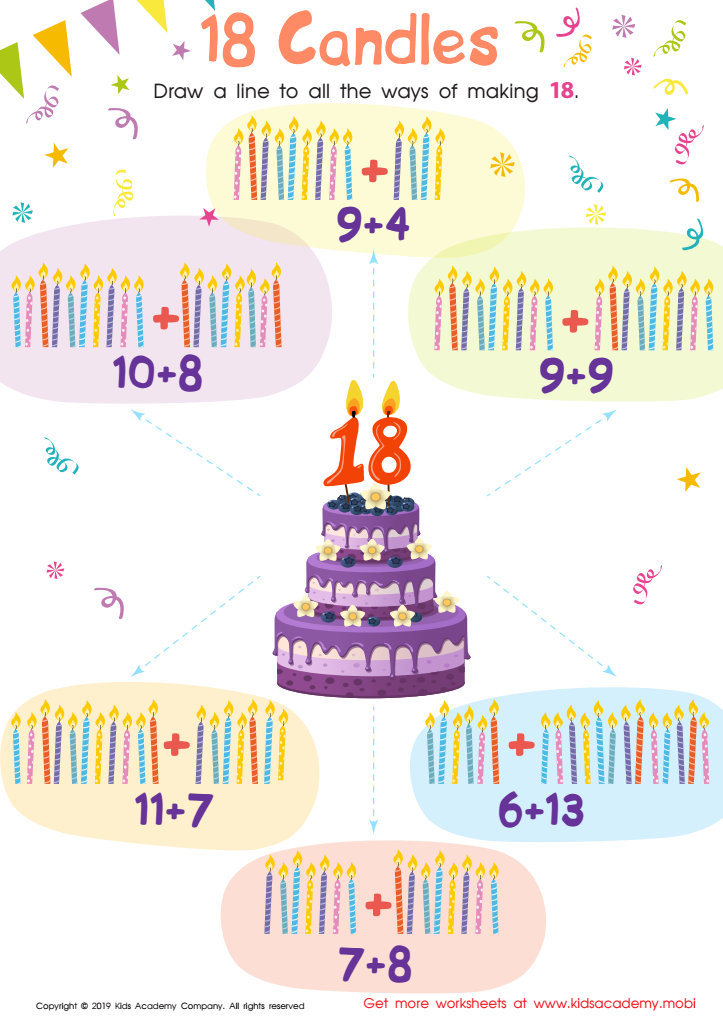

18 Candles Worksheet
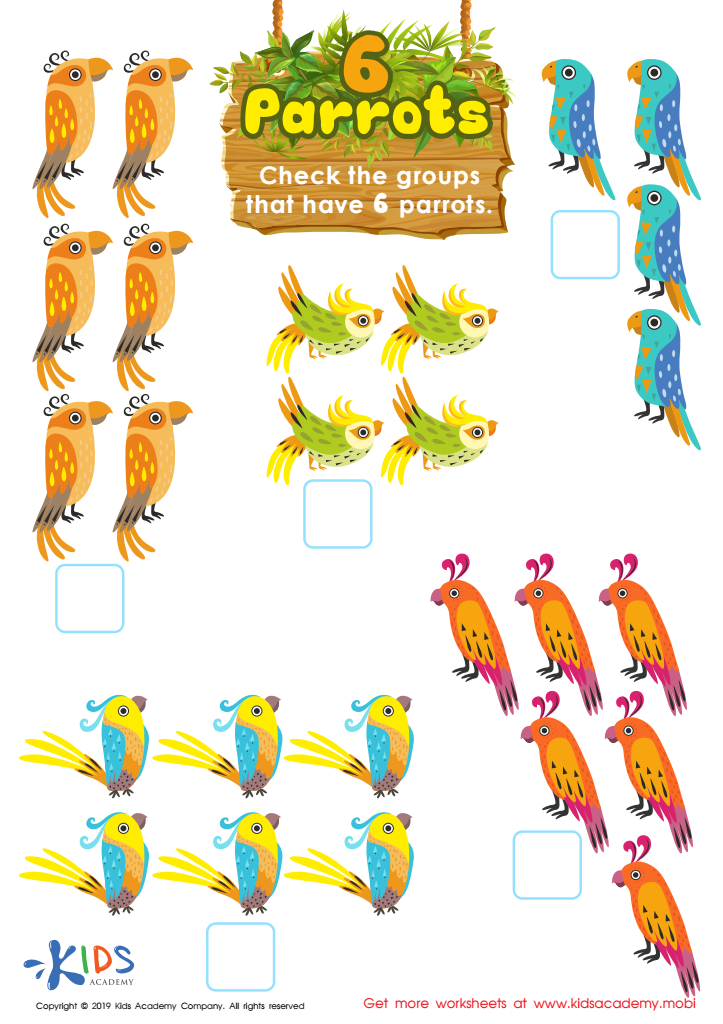

6 Parrots Worksheet
Fine motor skills refer to the refined movements of the small muscles, primarily in the hands, fingers, and wrists. For children aged 6-9, developing these skills is crucial as they form the foundation for many everyday tasks, including writing, drawing, and using tools. Strong fine motor skills enable children to engage more effectively in academic activities, fostering confidence and creativity.
Parents and teachers should prioritize fine motor skill development as it plays a significant role in overall child development. Mastering these skills allows children to better control their writing instruments, resulting in neater handwriting and improved academic performance. Furthermore, fine motor skills are linked to cognitive development; as children manipulate objects and engage in tasks that require precision, they enhance their problem-solving and critical thinking abilities.
Additionally, fine motor activities often promote social interactions and cooperation during group tasks or play. For example, activities such as crafts, puzzles, or building blocks can encourage teamwork and patience. By focusing on fine motor skills, parents and teachers help children build essential life skills that not only support academic success but also enable them to navigate their environment more confidently and independently. Investing in fine motor development ultimately prepares children for a bright future.
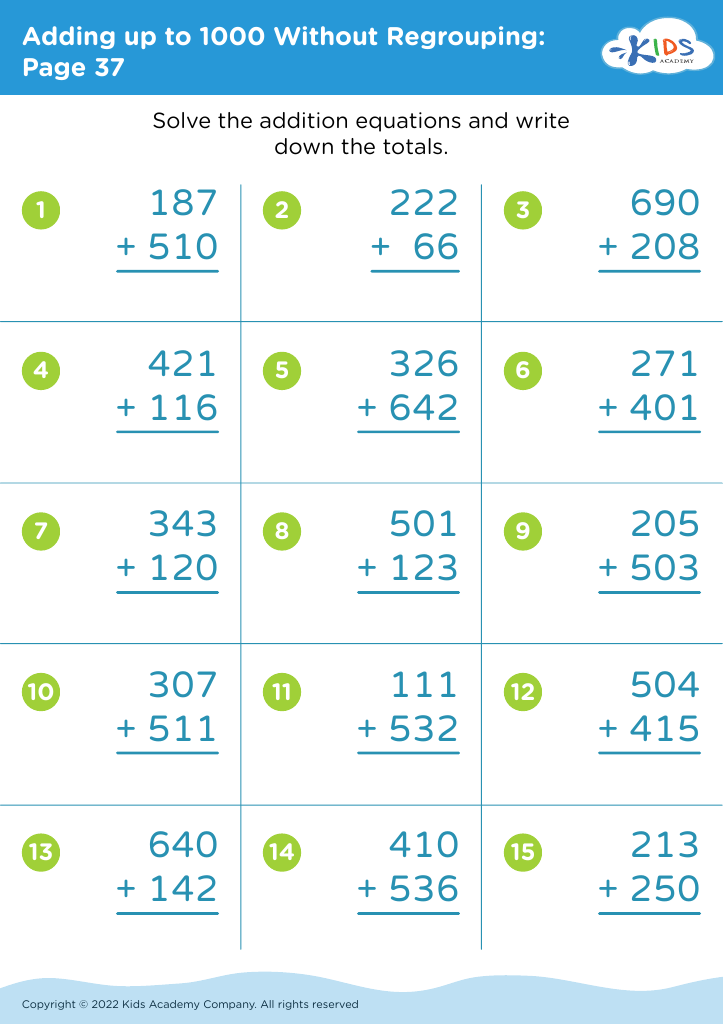


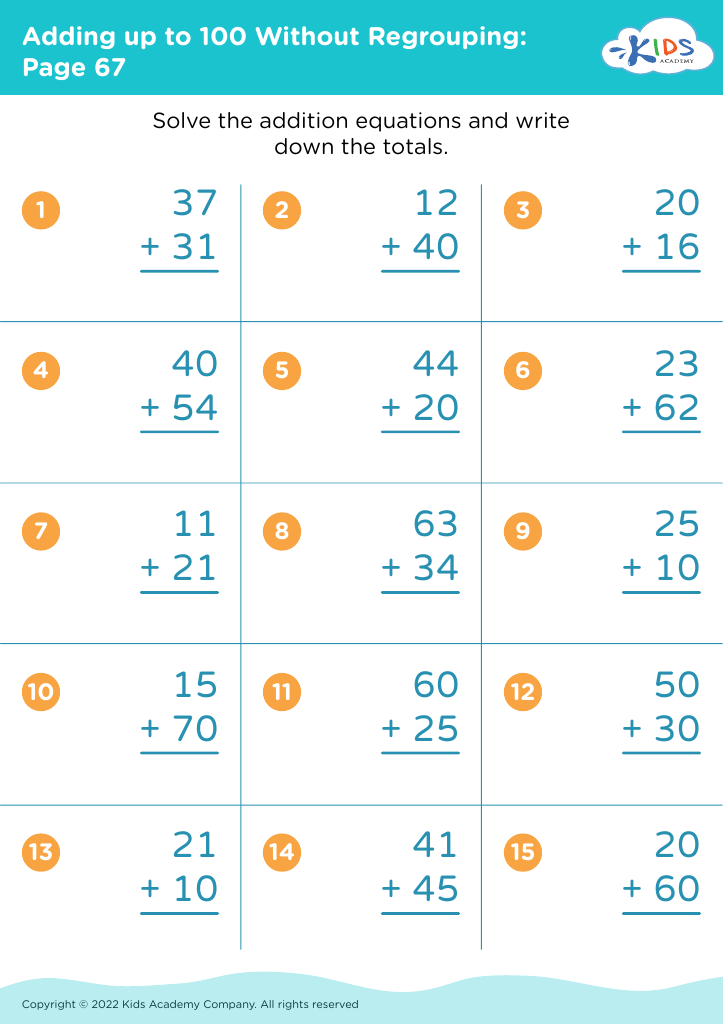





 Assign to My Students
Assign to My Students



